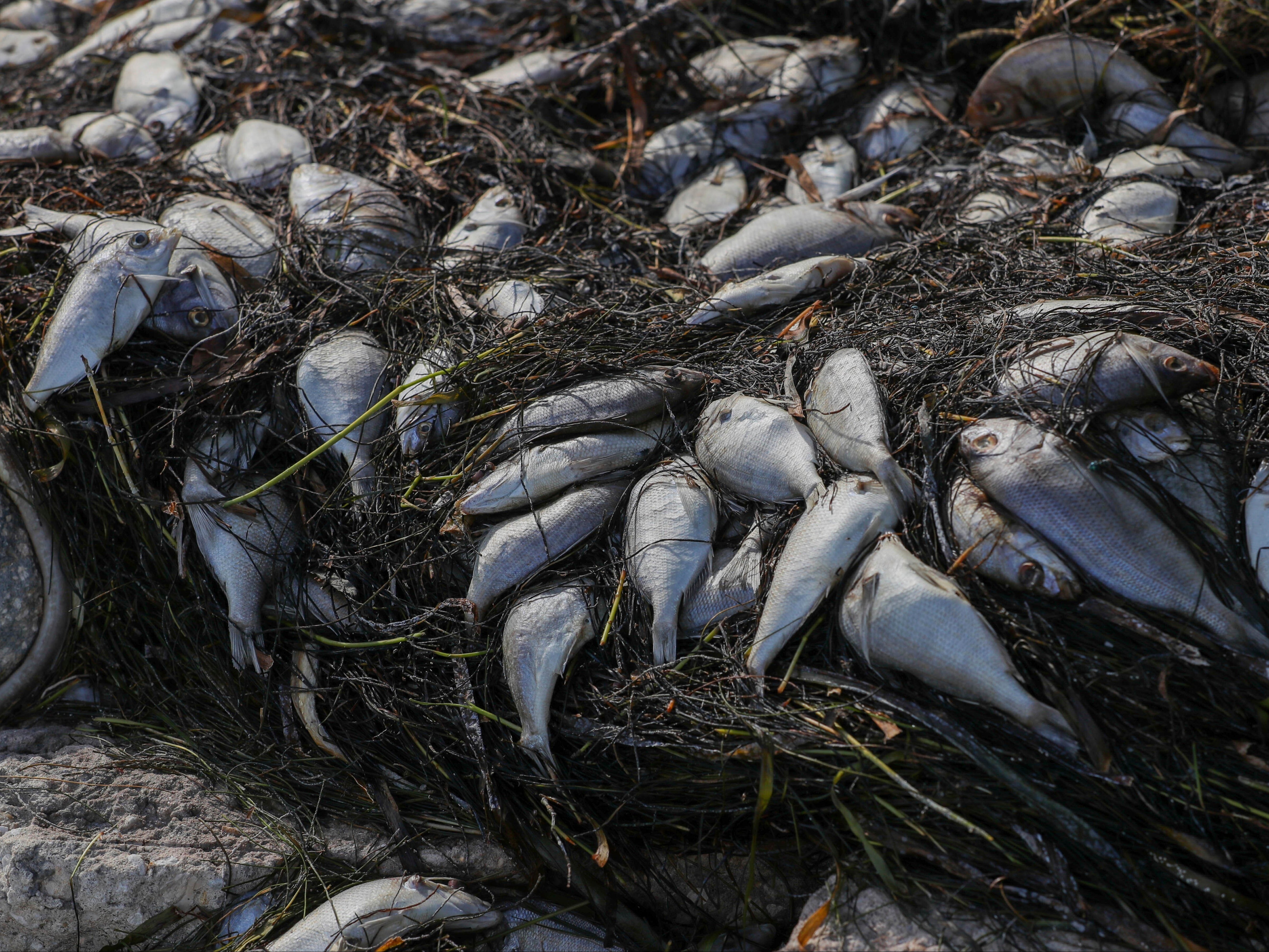Florida’s ‘red tide’ killing hundreds of tons of fish
Protesters are calling for Governor Ron DeSantis to free-up resources amid algae outbreak

A harmful “red tide” is killing hundreds of tons of fish in Florida, where Republican Governor Ron DeSantis has so far refused to declare a state of emergency.
At least 600 tons of marine life have been washed up on the shores of southern Florida since late June. Waves of dead fish have also been reported in South Tampa and St Petersburg, according to the Smithsonian and WUSF, a public radio station.
Officials in Pinellas County and the city of St Petersburg, which has been worse hit by the rise in toxic waters, recovered nine tons of fish over a single 24-hour period following last week’s Storm Elsa.
Environmental activists say the annual algae bloom was worsened by industrial waste poured into Tampa Bay in March, and is both killing hundreds of tons of fish and ruining Florida’s waters.
“Red tide” can worsen respiratory problems for sufferers of asthma, emphysema and bronchitis, and also causes a foul smell, which has been lingering over St Petersburg on and off for weeks.
On Saturday, more than 100 people protested in the city, demanding Gov DeSantis declare an emergency over the “red tide”, to free up resources to fight the algae.
Although officials in St Petersburg have already done so, the office of the Republican governor has ruled it out, and argued that sufficient funds were available from the state Department of Environmental Protection to fight the “red tide” outbreak.
Tampa Bay’s struggle with toxic algae follows the closure of the Piney Point phosphate and fertiliser plant in 2001, which was thought to have dumped more than 200 million gallons (757 million litres) of contaminated water into the bay in March.
The additional fertiliser and pollutants in the waters off southern Florida has been blamed for the algae bloom, which feeds off the nutrients — but is fatal for marine life.
Scientists at the University of Florida and the University of North Carolina have also argued in a recent letter that warming temperatures as a result of the climate crisis would stop “our ability to control blooms”.
The algae grows faster in warmer, as well as nutrient rich, waters.
Additional reporting by Reuters
Subscribe to Independent Premium to bookmark this article
Want to bookmark your favourite articles and stories to read or reference later? Start your Independent Premium subscription today.

Join our commenting forum
Join thought-provoking conversations, follow other Independent readers and see their replies